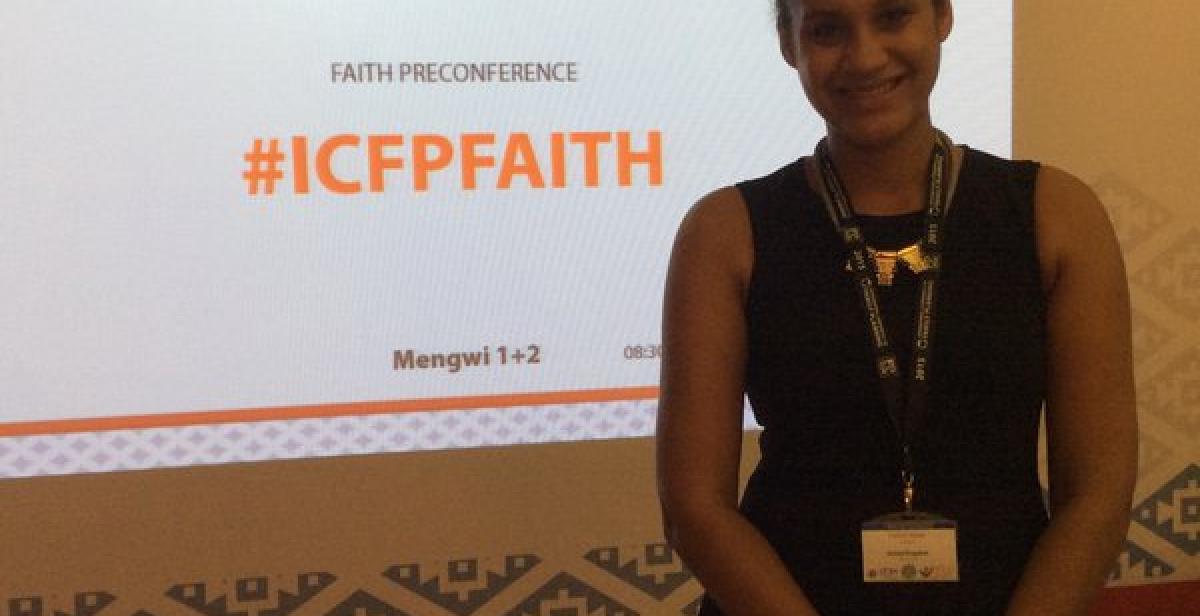Policy and Advocacy Officer Fatima Haase reflects on an exciting day in the run up to the International Family Planning conference in Bali.
"We should not forget or underestimate the role of moral values, ethical principles and religious beliefs on how people decide what actions they take or what they can commit to."
These were the words of Lambert Grjins, the Dutch Ambassador for sexual and reproductive health and rights (SRHR). I was lucky to hear Mr Grjins speak at the International Conference on Family Planning 2016 (ICFP) in Bali this week.
Speakers and participants from more than 26 countries gathered before the conference to discuss best practice and common challenges in advancing family planning from a faith perspective.
The ambassador concluded his presentation by saying: "It is time to bridge the gap between human rights and religion."
After the ambassador’s presentation I was super excited to hand in the policy briefing I had produced for the conference, which many people took a campaign action on. After all, the Dutch government is an important player in international negotiations and speaks up on discriminative social norms at UN conferences, for which I had made recommendations.
The overall feeling amongst the participants at the pre-conference, was that faith leaders are an underused resource to promote family planning.
We all agreed that advocating family planning is not for the sake of limiting the number of children but is to empower families; ensure that children are healthy; to decrease poverty, and to increase children's access to education. And lastly, we all agreed that women's empowerment is a key element for all development interventions, whether it is access to health, education, eradicating poverty and community development.
In fact, participants shared the understanding that family planning is included as a goal in the newly agreed Sustainable Development Goals (SDGs), and it was therefore natural for many of us participants to come up with several ideas on how our organisations can contribute to achieving the SDGs. These commitments are going to be shared at the closing session of the ICFP on Thursday.
The pre-conference on youth took place just a couple of rooms away. The event was attended by hundreds of young people from around the world - an amazing buzz dominated the room. I had the honour to speak at a session on the contribution of how faith institutions could improve youth access to SRHR.
I spoke about the massive contribution that Progressio's ICS volunteers are making in countries like Zimbabwe and Malawi, where they equip their fellow young people with knowledge about reproductive health, HIV prevention and empower youth to become more active citizens in their communities.
In the discussion afterwards, young people told me they don't know how to convince religious leaders to allow them to speak up about youth needs, for example protection from sexually transmitted infections in religious schools. It was striking to hear how, despite all the resources that are available, young people often start from zero when it comes engaging with religious leaders. Often they haven't been trained or empowered in how to engage with authorities, and because they are young they are often not taken seriously by the power holders in their communities.
But, as often happens in youth events or conferences, young people were committed to share their experiences and best practices. They teamed up after the official discussions, took selfies together and connected on social media so that they can offer their advice to each other.
Though the youth conference is over now, young people will continue to stand out and in fact the conference, which has eight sub-themes, puts a spotlight on youth: addressing youth needs and involvement is one of the sub-themes.
And with the official opening of the conference on the 25th January, Progressio will continue to bring youth voices and youth stories to the conference - stay tuned for more updates.



